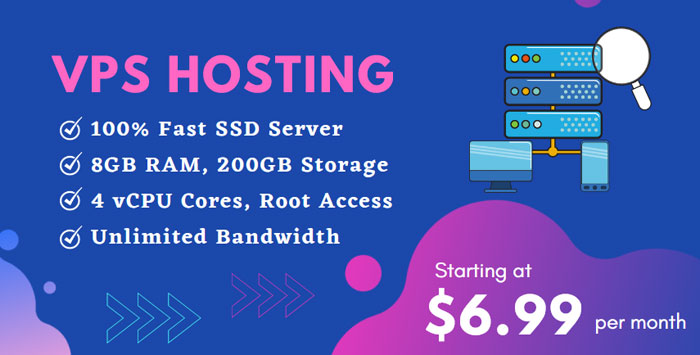Crank Out Ebooks with ChatGPT and Skyrocket Your SEO Traffic: A Snarky Guide
Are you tired of spending countless hours wracking your brains to create engaging ebooks? Ever wished you had a sidekick to do the heavy lifting? Say hello to your new best friend, ChatGPT.
This AI-powered tool from OpenAI can help you create ebooks faster than a hot knife through butter. And the cherry on top? Ebooks are a stellar way to drive SEO traffic. So buckle up, folks. You're in for a wild ride!
Step 1: Get Acquainted with ChatGPT
Let's cut to the chase. ChatGPT is a language prediction model, which in layman's terms means it can generate text that's eerily similar to human writing. Perfect for those who don't want to spend hours staring at a blank screen, right?
So, first things first, get to know ChatGPT. Play around with it. Learn how it works. It's like a new relationship. You need to understand its quirks and get comfortable with it before you start creating magic together.
Step 2: Choose Your Ebook Topic
Next, decide on your ebook's topic. It should be something relevant to your audience and aligned with your SEO strategy. Remember, we're not just writing an ebook for the heck of it. We want to drive traffic. So, choose a topic that's popular in your niche, has decent search volume, and isn't covered extensively by your competitors.
Step 3: Create an Outline
Before you let ChatGPT loose on your ebook, create an outline. This isn't just busywork. It'll ensure that your ebook is structured and covers all the important points. And don't forget to include a catchy introduction and a compelling conclusion. Here's a nonfiction book outline.
Step 4: Let ChatGPT Do Its Thing
Now, it's time to let ChatGPT do what it does best. Feed it your outline and let it generate your ebook content. Keep in mind, though, that ChatGPT isn't perfect. You'll need to keep an eye on it and make some tweaks here and there to ensure the content is up to snuff.
Step 5: Edit and Polish
Once ChatGPT has created the first draft, edit and polish it. Check for coherence, grammar, and flow. Add images, infographics, or any other visual elements to break the text and make it more engaging.
Step 6: Optimize for SEO
Don't forget to optimize your ebook for SEO. Include your target keywords in the title, headings, and throughout the content. Also, make sure your meta description is enticing and includes your primary keyword.
Step 7: Promote Your Ebook
Finally, promote your ebook. You didn't think we'd just let it sit on your website, gathering digital dust, did you? Share it on social media, send it to your email list, and use it as a lead magnet to entice visitors to subscribe.
FAQ
Q: How can an ebook drive SEO traffic?
A: Ebooks can be used in various ways to boost SEO traffic:
-
Lead Magnet: Use your ebook as a lead magnet. By offering it as a free download, you can encourage visitors to subscribe to your mailing list, reducing bounce rates and increasing time-on-site.
-
Backlinks: If your ebook provides value, other websites will likely link back to it, earning you valuable backlinks and improving your SEO.
-
Keyword Optimization: Ebooks allow you to incorporate long-tail keywords that might not fit naturally into your website's other content.
-
Authority: By providing in-depth information, a book can help establish your authority in your niche. This can improve your reputation and make your site more attractive to search engines.
Q: How can I ensure my ebook is SEO-friendly?
A: Optimize your ebook by including keywords in the title, headings, and throughout the content. Also, write a compelling meta description that includes your primary keyword. When promoting your ebook, ensure the anchor text used for backlinks includes your target keywords.
Q: Is ChatGPT perfect?
A: It’s a fantastic tool, but it's not perfect. You'll need to proofread the content it generates and make any necessary tweaks to ensure it aligns with your brand voice and meets your quality standards.
Using Ebooks to Drive SEO Traffic: The Takeaway
Using ChatGPT to create ebooks is like having a secret weapon in your SEO arsenal. It’s a surefire way to create valuable, in-depth content that appeals to your audience and search engines alike. But remember, while ChatGPT can do the heavy lifting, you'll need to guide it and polish the final product to ensure it's a masterpiece.
So, why not give it a whirl? Start creating ebooks with ChatGPT today and watch your SEO traffic soar faster than a SpaceX rocket. And remember, the sky’s the limit!
Recommended Tools for Creating Ebooks with ChatGPT
- OpenAI's ChatGPT: To generate high-quality text for your ebook.
- Grammarly: To proofread and polish the content.
- Canva: To design the ebook cover and add visual elements. Or use DIY book cover templates
- SEMRush or Ahrefs: To identify relevant keywords for your ebook.
Now, get out there and start making some ebook magic with ChatGPT! If you play your cards right, you’ll be raking in that sweet, sweet SEO traffic in no time.
Ebooks for SEO (making a chatGPT ebook for optins, leadgen and traffic!)
Will this actually work? Hypothesis: Google likes long organized content. If you think about it a silo or snowflake or whatever SEO method is just one big main topic broken into all the smaller subtopics. That's how a book works, too. You can use AI to create a pretty awesome ebook. You *could* format it as an epub and publish on kindle. Or you could just hide it behind an optin form to build your email list.
But what if you....
What if you just published the whole thing; each subheading is a block. A lead magnet might be 10K or 20,000 words - even that might be too long! - but a real book (people pay for) should probably be over 50K. That's 10, five-thousand work articles, or 100, short 500 word articles! And you can use both, because nobody is really going to stick around and check out ALLLLL of your articles. But if each one of those articles ends with "sign up and get the PDF of this entire book/series/etc.... that's good blog content that will also build your list.
AND - I haven't really verified this, but I'm pretty sure with growing AI stuff, that Google and everybody will scan your entire site to get a sense of the content. So by uploading a few books... maybe even 10 books or a million words, covering every topic, google will be able to see/read those books and know what your site is all about. That's a theory at this point but I don't hate it (likewise, I think Amazon will start showing results based on searches depending on what's inside the book, not just the packaging, to get better and recommending the right stuff to the right readers).












